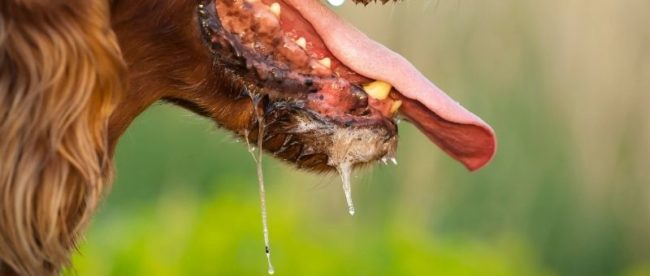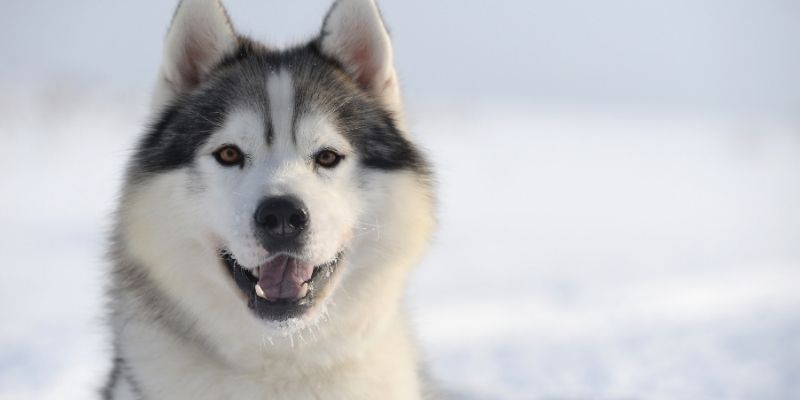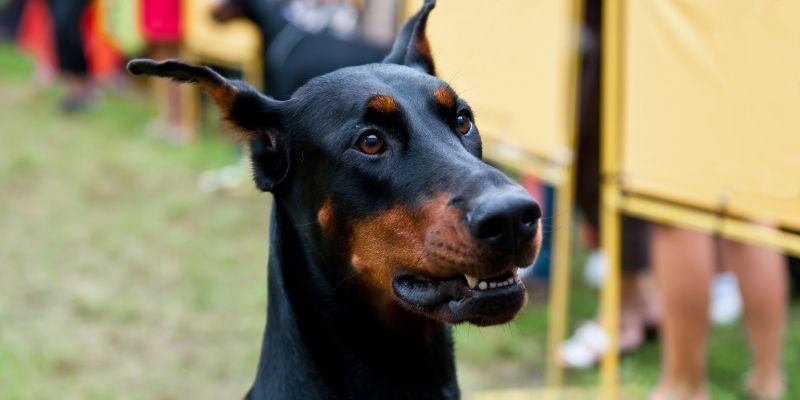Large Dogs That Don’t Drool: 5 Awesome Dog Breeds

If you are a fan of big dogs but not a fan of the idea that someone will be drooling all over your home, it might be time to look into getting a large dog that doesn’t drool (too much). This list of dogs may help you decide which breeds to look into for your next pet.
Do you have a specific question about large dogs that don’t drool? Then use the table of contents below to jump to the most relevant section. And you can always go back by clicking on the black arrow in the right bottom corner of the page. Also, please note that some of the links in this article may be affiliate links. For more details, check the Disclosure section at the bottom of the page.
Here's what we'll cover:
Old English Sheepdog
Most of these canines do not drool much; most individuals are unaware of this because their faces are coated in hair! They do, after all, leave a considerable amount of wetness when they drink. Still, any dog with a beard would have difficulties remaining dry.
This dog is a shepherd, which means it’s big and may weigh up to 100 pounds. They can compete in a wide range of events, including obedience, agility, tracking, and even personal protection tasks.
The majority of them are calm dogs that prefer to spend their time with their human family.
Leonberger
This dog from Germany is cute. He doesn’t drool a lot, but he does shed quite a bit.
In fact, this is one of the few big dog breeds that does not drool excessively. They were created by combining drooling breeds, but their lips have been tailored to be close together. The majority of huge dogs leak all over the place and have similar lips to this dog, which tend to drip.
When drinking, these pups are more inclined to make a mess, and they may require their faces to be cleaned several times during the day.
Like other dogs, they must be socialized and exercised. Still, this enormous breed is friendly with children, fun to be around, and a wonderful buddy. They don’t usually drool that much, either!
Husky

Huskies have a very low propensity to drool. They are sociable and thrive alongside people. Although they are good followers, training and socializing them at a young age is crucial. Because they’re bred for running, you must exercise with them.
Doberman

This breed was developed through many breeds that drool, but they were selected with tight lips. Dobermans do not drool very much.
They were developed as personal protection dogs, and they are still quite effective at it. Dobies weighing up to 90 pounds are big yet not enormous.
Due to their short coat and lack of drooling, Dobies make excellent pets for small apartments.
Borzoi
The appearance of this sighthound belies his actual stature. Many are over 100 pounds and ideal because they don’t bark much and are unlikely to drool.
They don’t make as much of a mess when drinking as some other large breeds.
Bloat is a severe risk to borzois since their deep chests make them prone to the condition. Hip dysplasia is unusual but may occur. The average lifespan of a dog is around 11 years.
These guard dogs are not particularly effective, but they are big enough to appear scary. Of course, they’d rather be running than guarding, and if you get one of these dogs, make sure you have an enclosed area where he can run without restraint.
Although the Old English Sheepdog is a messy drinker, it does not drool excessively.
Why Do Dogs Drool?
In most situations, drooling is natural for dogs. In Pavlov’s study, it was discovered that dogs might salivate in anticipation of their next meal in a bell experiment. Similarly, if your dog’s food is dry, he or she may drool more; this saliva aids in the digestion of meals.
When drooling might be a problem?
Sudden drooling might be a sign of a minor upset stomach, which does not require immediate medical attention. However, more serious concerns like cancer or organ disease should be treated by a veterinarian.
It’s critical to visit a veterinarian if drooling is connected with any additional symptoms. The combination might indicate anything from a minor stomach ailment to an anxiety attack or something more serious.
Credits: thanks for the cover photo to Canva.

Disclosure: At pawtypooch.com we only mention the products that we’ve researched and considered worthy. But it’s important to note that we are a participant of several affiliate programs, including VigLink, ShareASale, Skimlinks, and Amazon Services LLC Associates Program, an affiliate advertising program designed to provide a mean for us to earn fees by linking to Amazon.com and affiliated sites. As an Amazon Associate pawtypooch.com earns from qualifying purchases. Also, please note that pawtypooch.com does not intend to provide veterinary advice. All published articles are meant for informational purposes only. And this information should not be substituted for professional veterinary consultation.

